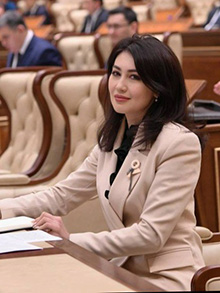Publications
Armenia and Azerbaijan Conclude the Year With Hopeful Prospects for Peace  By Vasif HUSEYNOV, PhD, Head of Department, AIR Center, Adjunct Lecturer, ADA and Khazar Universities, Baku
By Vasif HUSEYNOV, PhD, Head of Department, AIR Center, Adjunct Lecturer, ADA and Khazar Universities, Baku
On December 13, Armenia and Azerbaijan exchanged prisoners that each side had detained at different times since the end of the Second Karabakh War in November 2020. This historic exchange was made possible thanks to a significant breakthrough between the two countries on December 7. Baku and Yerevan issued a joint statement announcing a list of confidence-building measures to normalize relations and reach a peace agreement. Azerbaijan agreed to release 32 Armenian servicemen as part of the agreement, and Armenia reciprocated by releasing two Azerbaijani soldiers. While a number of unresolved issues remain, the recent success in bilateral consultations has given new hope for a comprehensive peace agreement between the two sides.
READ MORE
Publications
Why It Is Important to Diversify Armenia’s Foreign Policy  By Benyamin POGHOSYAN, PhD, Chairman, Center for Political and Economic Strategic Studies
By Benyamin POGHOSYAN, PhD, Chairman, Center for Political and Economic Strategic Studies
In recent years, perhaps the most discussed topic by international scholars, experts and politicians is the gradual transformation of the post-Cold War unipolar world order. There are different opinions about the process of transformation, the timing, and the main elements of this newly emerging world order. However, almost everyone agrees on one issue: the unipolar world is gradually becoming history, and before the final formation of the new world order, the next decade will be characterized by instability, conflicts, and economic shocks. Climate change and the ever-increasing role of digital technologies, including artificial intelligence, are additional factors of instability that make it even more difficult to assess, predict and formulate policies based on geopolitical developments in the coming years.
READ MORE
Publications
Does the EU Have any Strategy in the South Caucasus?  By Yeghia TASHJIAN, Beirut-based regional analyst and researcher, columnist, "The Armenian Weekly”
By Yeghia TASHJIAN, Beirut-based regional analyst and researcher, columnist, "The Armenian Weekly”
From November 27-29, 2023, a delegation of the European External Action Service (EEAS) and the European Commission visited Yerevan. The EU Delegation to Armenia said the purpose of the trip was to “explore possibilities to deepen and strengthen EU-Armenia relations.” Ideas were exchanged on “how to best leverage investments to address the immediate needs and enable integration of displaced Karabakh Armenians.” They agreed to “explore areas to strengthen cooperation between the EU’s Border and Coast Guard Agency (Frontex) and Armenia” and continue dialogue on matters of security and defence, such as the EU’s promise to explore non-lethal support to the Armenian military via the European Peace Facility. The EU representatives announced their support for the “normalization of relations between Armenia and Azerbaijan based on the principles of mutual recognition of territorial integrity and inviolability of borders based on the 1991 Almaty Declaration.
READ MORE
Publications
Gender equality in the civil service of Uzbekistan  Farangiz Avazbekova, Chief inspector of the Agency for the Development of Public Service under the President of the Republic of Uzbekistan; Doctor of Philosophy (PhD) in Law
Farangiz Avazbekova, Chief inspector of the Agency for the Development of Public Service under the President of the Republic of Uzbekistan; Doctor of Philosophy (PhD) in Law
The social and political activity of women and their participation in public administration bodies in the process of making important decisions are crucial for the development of the country. Sociological research has shown that women’s high efficiency, rapid and persistent decision-making, responsiveness to job completion, and prompt provision of executive discipline allow them to perform their duties effectively in the civil service.
READ MORE